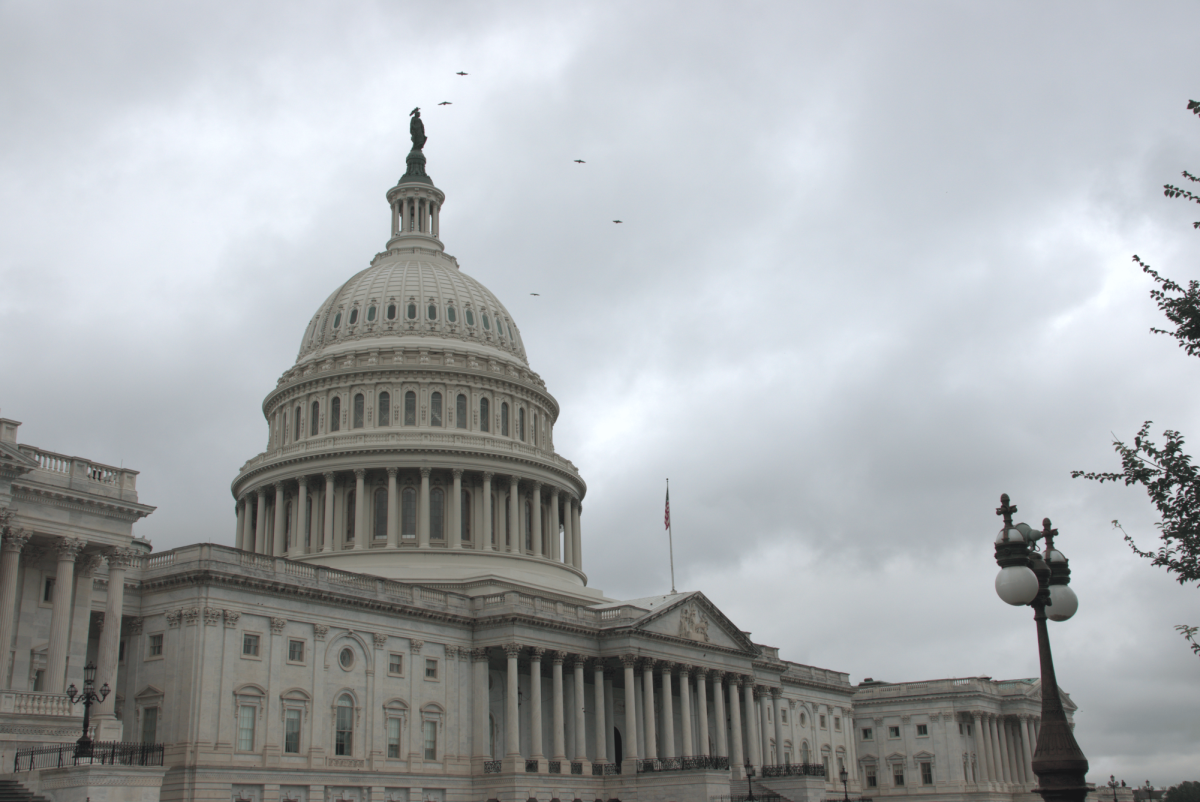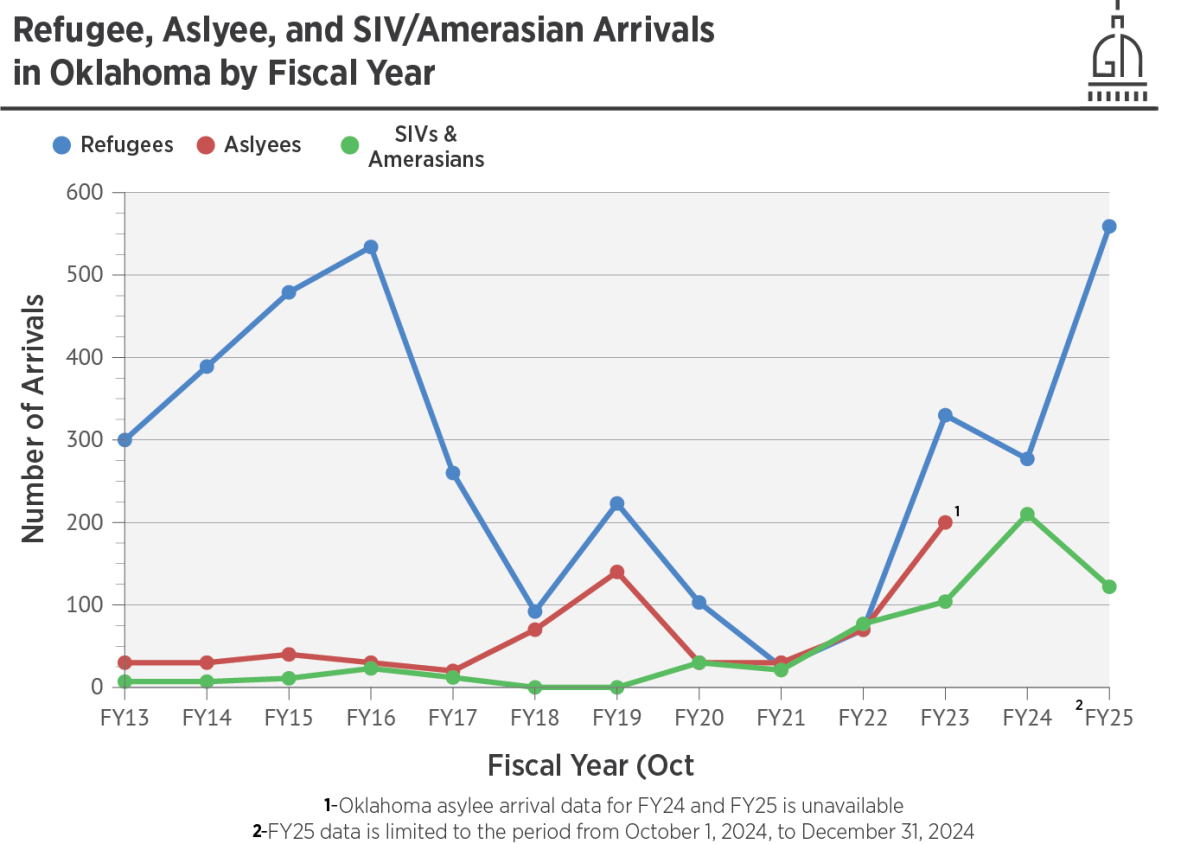WASHINGTON – While Oklahoma’s current members of Congress are unlikely to be defeated in the upcoming general election, control of the House of Representatives is a toss-up and the outcome could challenge Oklahoma’s influence on Capitol Hill.
ABC’s FiveThirtyEight’s latest House election simulation gives both parties a 50% chance to control the House. Of 1,000 simulations, FiveThirtyEight had Democrats winning 505 times and Republicans 495.
The closest race in Oklahoma, according to FiveThirtyEight’s model, is in the 5th Congressional District. Their model is predicting incumbent Rep. Stephanie Bice (R-Oklahoma City) will win, but not by the overwhelming margins predicted for the rest of the Oklahoma House delegation. She is being challenged by Democrat Madison Horn.
Oklahoma’s current congressional delegation is among its most powerful in history. Only the delegations of the 1950s, 60s and 70s, which included former Speaker of the House Carl Albert, rival it. During his 30-year tenure in the House, Albert was the House Majority Whip, Majority Leader and Speaker.
“It’s been a long time since Oklahoma has had this type of influence in Washington, D.C.,” Emily Stacey, a political science professor at Rose State College, said.
Stacey said the power is largely due to one representative in particular, Rep. Tom Cole (R-Moore) who is the Chairman of the House Appropriations Committee.
“The power of the purse is probably the most important oversight mechanism that Congress has,” Stacey said. “So for an Oklahoman to be part and parcel of choosing what legislation is going to be heard by that committee is hugely influential.”
A flip in the House
Democratic control of the House could lessen Oklahoma’s congressional power, but not ruin it.
“It would hurt in some sense, but it’s not like you’re locked out either,” Charles Finnocchiaro, Associate Director of the Carl Albert Congressional Research Center, said.
While it would hurt, the influence and position of certain members would help.
“Representative Cole will be ranking member on appropriations, that is still an important and powerful position,” Michael Crespin, the director and curator of the Albert research center, said.
The ranking member of a committee is the highest-ranking member of the minority party. They are seen as second-in-command of a committee.
“There’s still a real benefit for being the ranking minority member on a committee like appropriations,” Finnocchiaro said. “When you look at the distribution of federal funds, certainly the majority party has an advantage. But if you have a seat at the table, you still have a significant slice of that funding that advantages the states that are on the minority side.”
Cole’s history of working across the aisle and being a trustworthy partner would only help him keep his current level of influence.
“I think that probably if anything, gives him an added leg up in dealing with Democrats and dealing with Democrats in ways that are favorable for Republican states and Republican districts like those in Oklahoma,” Finnocchiaro said.
Cole would not be the only Oklahoman in a position to become the ranking member of a committee in a Democrat-controlled House.
Rep. Frank Lucas (R-Cheyenne) is the Chairman of the House Committee on Science, Space and Technology. If the Republicans become the minority party, he would be first in line for ranking member of the committee. In December 2023, Rep. Patrick McHenry (R-NC), chairman of the House Committee on Financial Services, announced his intent to retire at the end of the session. Lucas could become that committee’s ranking member.
Reps. Bice, Josh Brecheen (R-Ada) and Kevin Hern (R-Tulsa) are not in line for any ranking member positions.
In a Democrat-controlled House, Breechen, a member of the Freedom Caucus, could see his influence decrease.
“If the Democrats control the House, the Freedom Caucus is pretty marginalized,” Crespin said. “The Republican leader in the House would only need a majority of Republicans to get elected.”
With only 34 members, the caucus is a small part of the party’s membership in the House.
The House stays red
If Republicans keep control of the House after the November 5 election, Oklahoma’s delegation could gain some power.
Four months after McHenry announced his intent to retire, Lucas announced his intent to run for Chairman of the House Committee on Financial Services.
The House Committee on Financial Services oversees Wall Street, the Treasury Department and the Federal Reserve.
After announcing his intent to run for Chairman of the House Financial Services Committee, Lucas said in a Roll Call interview that he is an underdog in the four-way race for the gavel.
Despite being the second-most senior Republican member of the House, Lucas was unable to chair a Financial Services subcommittee during the 118th Congress because he was Chair of the House Committee on Science, Space and Technology.
His opponents in the race for the Financial Services chair, Reps. Andy Barr (R-KY), French Hill (R-AR) and Bill Huizenga (R-MI) all chaired Financial Services subcommittees.
Unless a surprise challenger comes along, Cole will likely continue his tenure as a Capitol Hill rainmaker through his position as Chairman of the House Appropriations Committee.
In a Republican-controlled House, Brecheen and the Freedom Caucus could avoid becoming marginalized as a caucus focused on disruption, a role they played during the 118th Congress.
“We’re gonna have the same situation, the Freedom Caucus if they can vote together, they can have a decent amount of power, because the Republicans are going to need those votes to choose a leader, choose a speaker and then pass any legislation,” Crespin said. “It’ll be hard to marginalize them as a group.”
Kevin Eagleson is reporting from Gaylord News’ Washington bureau this fall as part of an OU Daily scholarship.
Gaylord News is a reporting project of the University of Oklahoma Gaylord College of Journalism and Mass Communication. For more stories by Gaylord News go to GaylordNews.net







